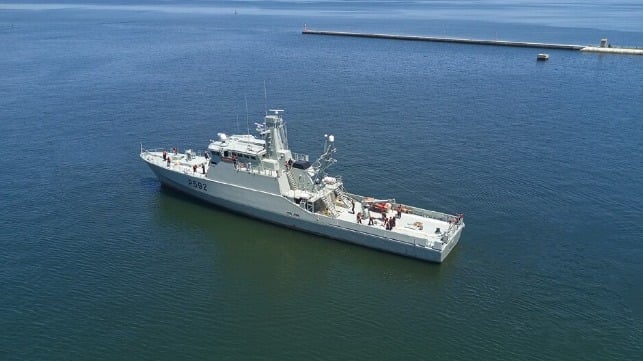Portuguese Navy Relieves Sailors for Refusing to Board “Faulty” Vessel

The Portuguese Navy is relieving 13 sailors and opening a criminal investigation after they refused to board their assigned vessel and assume their posts in preparation for a mission to track a Russian vessel transiting near Madeira. The Navy is responding saying that the vessel despite faults was seaworthy while raising suspicions that the assignment to track a Russian vessel may have also been a factor in the incident.
The sailors are assigned to a base in the Madeira archipelago manning a patrol boat. On the night of March 11, they were ordered to head to sea to track an unidentified Russian vessel sailing north of the island of Porto Santo. Portuguese media is reporting that the vessel was believed to be a spy ship and that it was a routine mission to track the vessel while it was near the islands. The Navy is further defending the mission saying that it was a short-duration assignment and that the patrol ship would have remained close to the coast operating in good weather conditions.
Four sergeants and nine enlisted men assigned to the ship, however, refused to board the ship and undertake the mission. Reports indicate that the cited safety concerns after the vessel, the NRP Mondego, a Tejo class patrol vessel acquired in 2014 from the Danish Navy, experienced engine troubles earlier in the day. Media reports are further saying that the vessel has repeatedly experienced engine failures among other problems including oil, water, and sewage leaks.
A Portuguese admiral flew to the base and boarded the ship on March 16 speaking with the captain. Media reports said he wanted to also speak directly to the 13 sailors and addressed the entire ship’s company. Speaking with reporters after leaving the vessel he reiterated the safety of the vessel and the importance of the chain of command.
The Portuguese Navy in its official statement said the 13 sailors engaged in an act of insubordination for refusing to fulfill their military duties and usurped functions, powers, and responsibilities not inherent in their respective posts and positions.
“Because possible criminal matters may be at stake, the Navy informed the Military Judicial Police of all the events that occurred,” said the statement. The sailors they reported were being relieved as soon as possible while the process of an internal disciplinary action proceeds.
While Mondego’s commander reported that the ship had experienced an engine fault, he reported through the Navy’s command chain that the vessel had the ability to conduct the mission. The Navy contends the captain was given the freedom to abort if he felt the mission was unsafe.
“Warships, being a set of very complex and very redundant systems, can operate in a very degraded way without impact on safety. This evaluation, once again, belongs to the command line and the Material Superintendence, as the responsible technical entity. Both entities did not consider the ship unsafe to sail,” reported the Navy.
It added that the sailors refused to undertake the mission despite being trained to operate the vessel in a degraded condition. Sailors, they said, are prepared to deal with the inherent risks that are part of the military conditions.
Despite the 13 assessing the ship and concluding it was not ready to sail, some told the commander that if the mission were to save lives they would have gone to sea. Based on these comments, the Navy is considering if the team deliberately refused to carry out the mission of tracking the Russian ship.

that matters most
Get the latest maritime news delivered to your inbox daily.
Reports of the poor conditions aboard the vessel have sparked a series of defenses both from the Navy and government officials. They cited monies allocated in the upcoming budget for overhauls of the vessels while saying social media reports and a video of flooding on the Mondego were a year old and out of date.
Mondego is part of a series of three ships that make up the Tejo class in the Portuguese Navy. Formerly named HDMS Glenten, the ship was in service with the Royal Danish Navy from 1992 to 2010 before it was sold to Portugal in 2014. Renamed Mondego, and after a period of reconfiguration and modernization, the vessel operates patrols and surveillance of Portugal’s maritime spaces.
